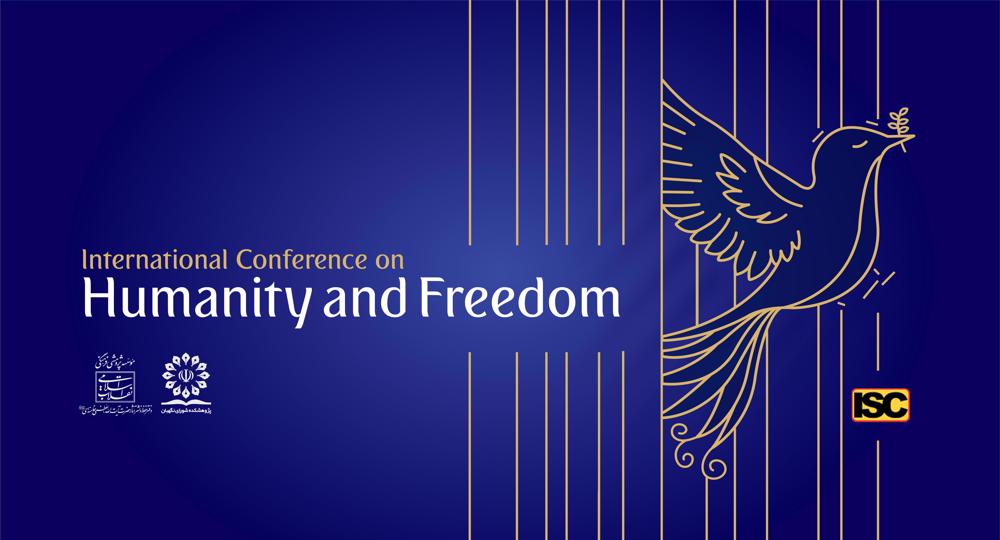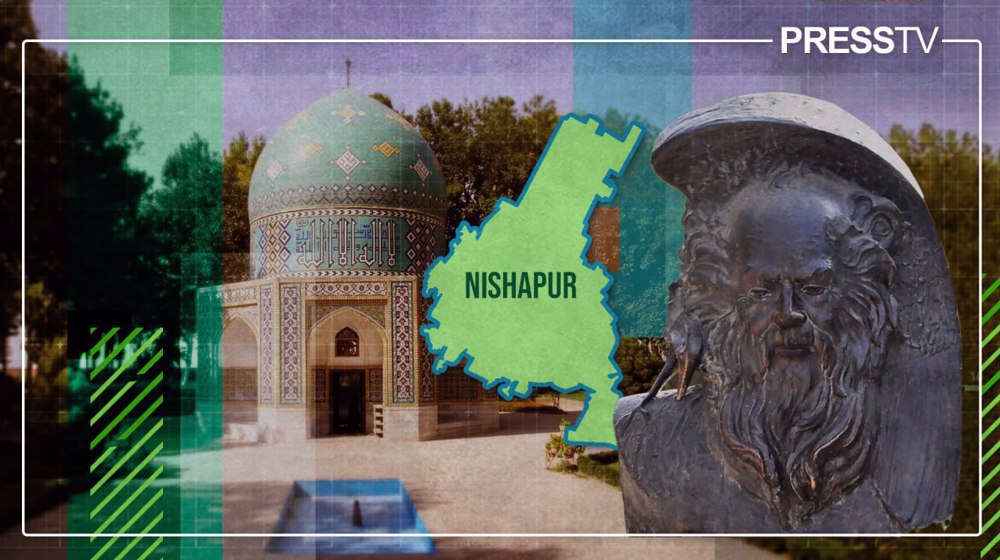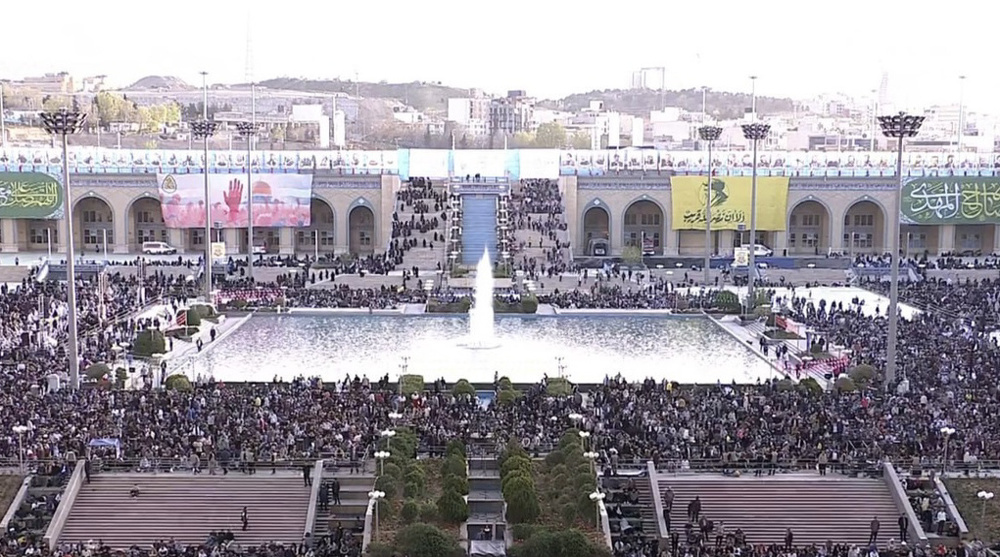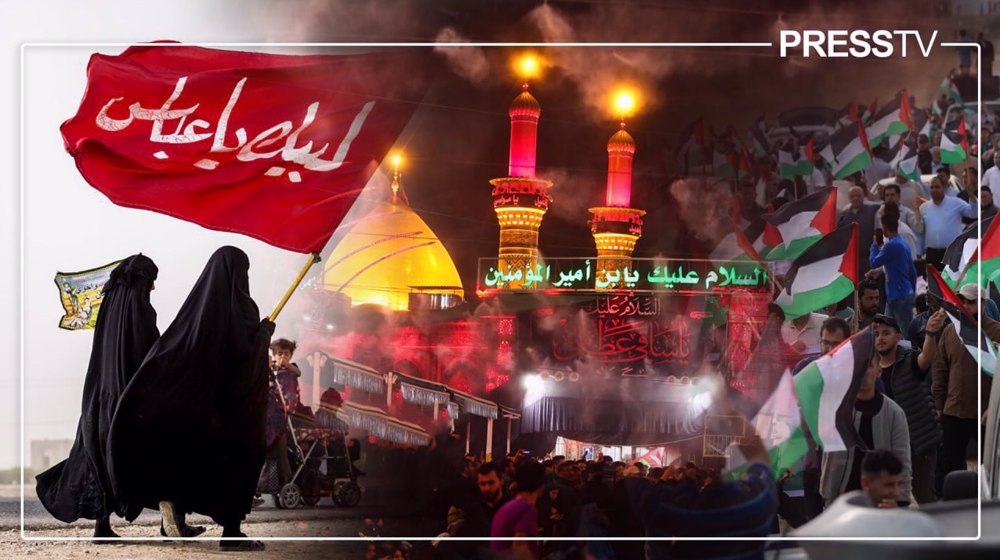Message from Arbaeen Walk: The path to Al-Quds passes through Karbala
By Wesam Bahrani
Millions of people from around the world, after walking approximately 80 kilometers from the holy city of Najaf, have gathered in the holy city of Karbala to commemorate the Arba’een of the martyrs of Karbala.
This year’s Arbaeen Walk holds added significance as it coincides with the ongoing Israeli genocidal war against Palestinians in the besieged Gaza Strip, which has claimed more than 40,200 lives since October 7th.
Unsurprisingly, corporate media in both West Asia and the Western world largely and deliberately ignored this immensely popular annual event, demonstrating their complicity in the genocidal events unfolding in Gaza.
This blatant disregard persists despite the fact that this gathering represents the largest annual pilgrimage on the planet. According to conservative estimates, more than six million pilgrims participated in this year's Arbaeen walk, though the actual figure is likely much higher.
The very purpose of these annual Arbaeen commemorations and the traditional march from Najaf to Karbala is to preserve and promote the legacy of Imam Hussein (AS) and the other martyrs of Karbala—a legacy of truth and justice that the West fears.
This year, during the Arba'een Walk, participants enthusiastically carried Palestinian flags and chanted slogans against the child-murdering regime in Tel Aviv, reaffirming their commitment to the sacrosanct values exemplified by the 'master of martyrs' on the desert plains of Karbala.
There is no place outside of occupied Palestine more suited to highlight the plight of Palestinians than Karbala, as they rightly say, the path to occupied Al-Quds passes through Karbala. The Arba’een Walk is key to the liberation of occupied territories.
L90Karbala is where blood triumphed over the sword, and over 1,400 years later, scholars, historians, and humanity continue to echo Imam Hussein’s (AS) vow to choose death with dignity over humiliation, no matter the suffering endured by him and his family.
There was no surrender in Karbala, and there is no surrender in Gaza today. God-fearing people only surrender to Him and are ready to pay any price to defend humanity and human values against satanic forces.
Over the past several days, millions of pilgrims have walked the 80-kilometer route from Najaf to Karbala in scorching heat, keeping alive the legacy of Imam Hussein (AS) and his sister Sayyeda Zeinab (SA).
This year, Palestinian flags lined the route, hanging from every lamppost, waved by millions from all walks of life, men and women, old and young.
A field hospital along the way was dedicated to the assassinated Palestinian resistance icon, Ismail Haniyeh, whose poster joined those of the martyrs who sacrificed everything in the fight against American hegemony and Zionist brutality.
These resistance icons will be remembered, just as Imam Hussein (AS) is remembered. They followed Imam Hussein’s path and immortalized themselves.
Shia-Sunni unity was also on full display for the world to see during this year’s Arba’een Walk. It serves as a reminder that Muslims are united in defending the Al-Aqsa Mosque and liberating the occupied Palestinian territories from the Zionist occupation.
Even non-Muslims—Christians and Jews—are united today under the banner of humanity to defend the oppressed Palestinians. It's important to remember that Imam Hussein (AS) stood for humanity and human values in Karbala.
When the governor of Karbala visited the Al-Aqsa Center, the highlight of this year’s Arba’een walk, he wore the Palestinian keffiyeh to emphasize that this year was all about Gaza. This year, all eyes are on Gaza.
When injured members of the Iraqi resistance stood in line to embrace even one injured Palestinian from Gaza, it underscored what the Iraqi resistance, along with other resistance groups, are fighting for: to free Gaza and liberate occupied Al-Quds, the first Islamic Qibla (direction of prayer), which Muslim Arab rulers appear to have forgotten.
Imam Hussein’s (AS) shrine in Karbala doesn’t belong solely to Iraqis. Karbala, with its religious and humanitarian significance, belongs to everyone, and those who have marched to Karbala over the past two weeks have done so out of their love for the man known as the "master of challengers."
Without Karbala, US forces would still be occupying all of Iraq, the Israeli regime would still be occupying southern Lebanon, and Daesh would still be terrorizing Syria and Iraq today. It is Karbala and Imam Hussein’s (AS) inspiring and illuminating legacy that made their defeat possible.
As the world watches in horror the daily massacres against starving and thirsty children in Gaza, there is not only hope for the Palestinians but an absolute certainty that the Palestinian resistance, following the roadmap of Karbala, will emerge victorious.
The Israeli occupation forces have already been militarily defeated in the tiny territory of Gaza, which is no larger than 360 square kilometers. The ultimate victory will be the end of the Israeli occupation and apartheid.
Judging by the scenes emerging from Gaza, the resilience of the children, women, and elderly, along with Yahya Sinwar’s reference to Karbala and the letter from the Palestinian resistance to Hezbollah about breaking the door of Kheybar again, there is no doubt that the embattled Benjamin Netanyahu regime will lose—and lose in utter disgrace.
Hezbollah leader Seyyed Hassan Nasrallah recalled that during the 2006 Israeli war on Lebanon, he knew the Lebanese resistance would prevail over the Israeli military after receiving a letter from the Leader of the Islamic Revolution, Ayatollah Seyyed Ali Khamenei, during the early days of Israel's carpet bombing of southern Lebanon.
All these leaders are followers of Imam Hussein (AS), and the path to Gaza and occupied Al-Quds passes through Karbala.
This is why the Israeli military has failed to defeat the Palestinian resistance in Gaza after eleven months of genocide and the loss of 40,200 innocent lives. Anywhere else, the job would have been done in eleven days.
Wesam Bahrani is an Iraqi journalist and commentator.
(The views expressed in this article do not necessarily reflect those of Press TV.)

Tehran to host intl. conference on humanity, freedom centered on Leader's thoughts

Sheikh Farid-ud-din Attar: Persian mystic and progenitor of fable in Iranian Sufism

Eid al-Fitr celebrated in Iran, other countries as holy month of Ramadan comes to a close
Hamas ready to hold talks for ‘comprehensive’ peace deal: Al-Hayya
Iran strongly condemns 'brutal' US airstrikes on Yemen’s fuel port
IRGC kills ringleader of terror group behind deadly attacks in SE Iran
IAEA deputy chief to visit Tehran for technical discussions: Iran nuclear spox
Trump induces socio-economic turmoil in Washington
VIDEO | The story of Areej: Channeling grief purposefully
VIDEO | Press TV's news headlines
VIDEO | GoT actress on life before and after Gaza







 This makes it easy to access the Press TV website
This makes it easy to access the Press TV website